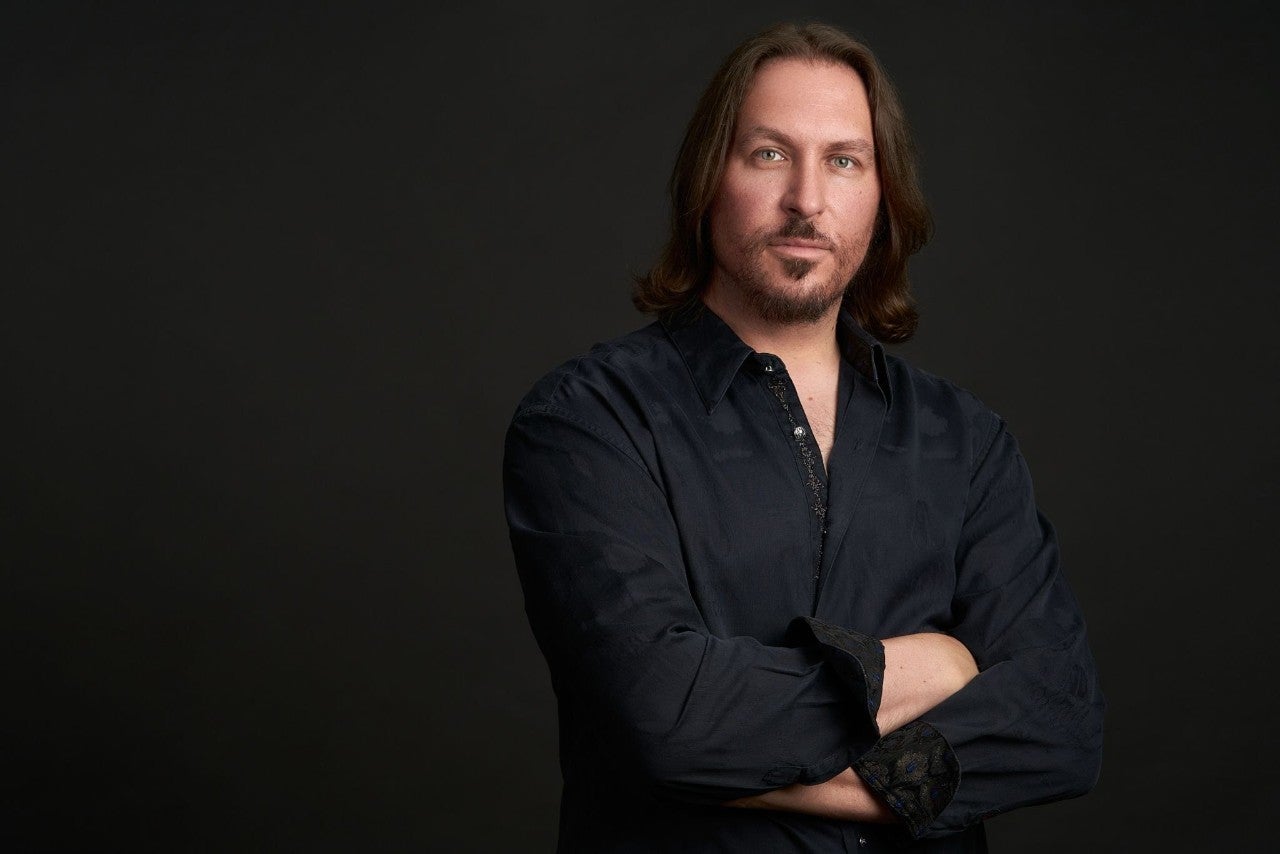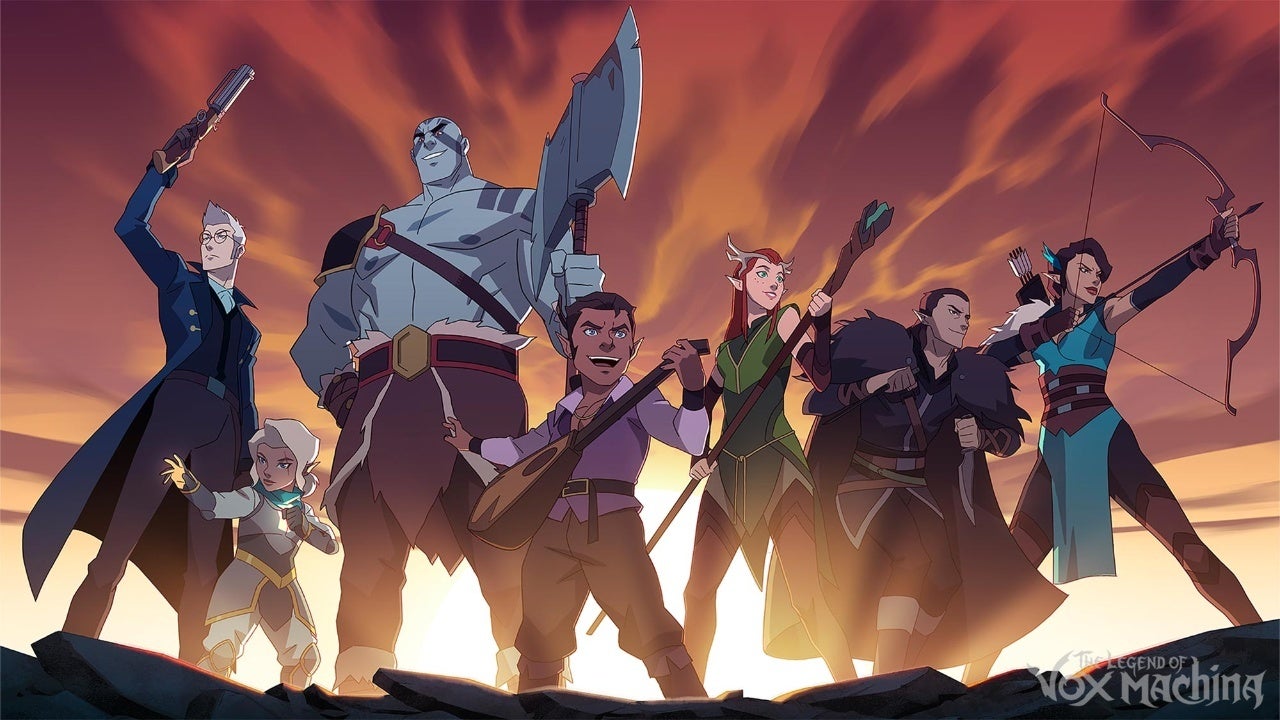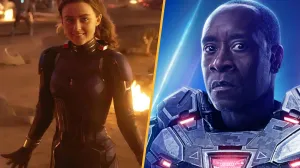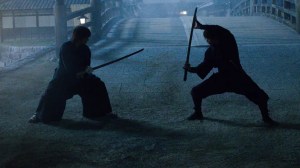The Legend of Vox Machina continues to build an impressive party of animation talent to bring the world of Critical Role to life. Earlier this week, Critical Role announced that Neal Acree had joined its animated The Legend of Vox Machina series as the series composer. Acree is an award-winning musician with over 25 years of experience and secured his place as The Legend of Vox Machina‘s composer by scoring an orchestral version of Critical Role’s theme song and then having a full orchestra actually perform it. To find out more about Acree’s role with The Legend of Vox Machina and the unique challenges the show brings, ComicBook.com sat down with Acree via interview:
Videos by ComicBook.com

ComicBook.com: How long have you been a Critical Role fan? Do you have a favorite character in Vox Machina?
Neal Acree: I think I started watching mid 2017 but it’s only grown from there. I had worked both indirectly and in one case directly with cast members on video game projects and had been a fan of them as voice actors for years. But Critical Role is something else entirely. One of the highlights of the last couple years was (pre-pandemic) getting to sit in-studio and watch a live episode get made. There’s magic in that room.
Favorite character in Vox Machina? That’s tough as they are all fascinating and endearing in their own way. And I’m coming at this both as a fan of the show and as a composer getting to dance with their performances on screen. Grog is a lot of fun to write music for—both from a comedic perspective and for the raging badassery. I love Vax’s grace and emotional depth and Liam brings so much to the game and the role. I love them all but if I HAD to pick one I’d probably say Scanlan. Both being a musician myself and for the fact that Sam is nothing short of a comic genius.
As mentioned in The Legend of the Legend of Vox Machina video announcing your involvement with the series, you provided a sample of a full orchestra doing a rendition of the Critical Role theme song when they were considering composers. I have to ask – how long did it take to compose all the parts for a full orchestra and then actually arrange for the piece to be recorded?
Acree: It probably took a couple weeks from start to finish. It’s not a long piece but from writing to orchestrating to recording, editing and mixing there are a lot of opportunities to get lost in the process, especially something I wanted to be as close to perfect as I could get it. It might seem like a flashy move to record an orchestra for a demo but for me it was about capturing the detail and energy that real musicians bring. I’ve always felt that orchestra should be a big part of the show and that idea is a lot easier to convey with something you don’t have to imagine.
You have a very long history of composing everything from long-running video game franchises to extremely popular sci-fi shows. What sort of challenges does this project have that you haven’t faced before?
Acree: The things that make the show so great are also among the things that make it challenging as a composer but I love a good challenge. There is so much packed into every episode, everything from comedy to action to suspense and horror, sometimes all in the same scene! Navigating that and finding a cohesive thread that ties it all together is always a fine line. On top of that there is live orchestra in every episode, lots of music to write, record and mix and it all has to get done on a fast paced television schedule.

You mentioned that you pulled from a variety of different musical genres and styles when creating themes for the various characters and places. Given that Critical Role is a very fantasy-oriented show, how do you balance the epic scores that fantasy series are known for with the modern sensibilities of the show?
Acree: You know, before I even started writing I had a lot of preconceived ideas as to what I wanted the score to be. I wanted it to capture the excitement I felt while watching Saturday morning cartoons as a kid but without sounding retro. I wanted to incorporate a lot of interesting world instruments to give it a sense of time and place but I also felt the scope of the story deserved a sweeping orchestral score. I wanted to challenge the conventions of the genre but in the most organic way possible. I didn’t want to throw modern elements just for the sake of trying to be modern.
But for all my planning when I finally sat down to start writing, the show really took on a life of its own. Everything was there on the screen and it was just a matter of finding what resonated with that. There were a few times that I sent something to Sam and Travis and said “is this too weird?”. The answer was always no and I love having the freedom to experiment and push the boundaries like that.
Between Sam and Peter Habib’s songs and some of my own stuff we got to take the music into some really unexpected places.
Is there a particular piece of music from the series that you’re most excited for the fans to hear?
Acree: Another tough question! There are so many little musical Easter eggs that I’m looking forward to seeing if people catch. The beauty of television is that you can develop ideas over long periods of time and tie moments together over a much bigger space of time than in a film. I can’t get too specific but I will say that there are moments relating to the Briarwoods as well as Percy that I’m really proud of.
How hyped should fans be for the first season of The Legend of Vox Machina?
Acree: I’m sure there are a lot of people that are already hyped near to the point of spontaneous combustion by now but the truth is it’s genuinely a really good show. Whether you’re a longtime fan or someone coming in completely fresh it’s the real deal. One of the best things I’ve ever worked on.
The Legend of Vox Machina will air on Amazon Prime. No release date has been announced for the series, but promos for the show say it’s “coming soon.” Amazon has already renewed The Legend of Vox Machina for a second season.








